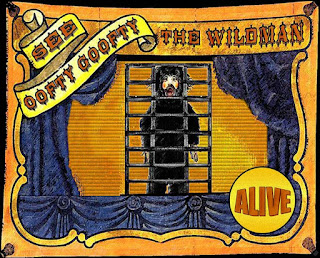A big event each
year in our part of the Ozarks was the Fourth of July picnic in Greenfield, the
county seat of Dad County. I do not know
why it was called a “picnic” because it was far more than that. It included carnival rides set up all around
the courthouse square, hamburger stands, all the usual carnival booths with
prizes, a few sideshow tents, and a fireworks display at dark.
During the first
half of the year, we boys tried to save some money to spend on fireworks on the
4th. We did not usually save much
because the rabbit selling season and possum hinting were on in the fall and
winter. My mother, however, always
managed to give us enough for some firecrackers, a cap gun, and a hamburger. I think she sometimes sold some of the
chickens to give us fifty cents apiece.
Our fireworks in
those days were not subject to the safety regulations we know have and,
consequently, were far more potent and a lot more fun. We were taught the dangers involved and were
then on our own. I never heard of a
serious injury involving fireworks; however, we were all subjected occasionally
to minor burns, numb fingers, or temporarily deafened ears once in a while.
We had
firecrackers that would blow a Maxwell House coffee can fifty feet into the
air. Our cap guns sounded like real
revolvers and the Roman candles would send fireballs a hundred feet into the
air.
One of our
favorite devices we called a “cherry bomb” but it was not a firecracker with a
fuse. It was an innocuous appearing
brown ball about the size of a walnut.
It went off on impact like a miniature hand grenade. Thrown high in the air so it would come down
on pavement or thrown at a boulder, a cherry bomb made a soul-satisfying bang. I recall one 4th when we saved
some of those cherry bombs and had a “war” the next day before Sunday dinner on
a rocky hillside near my Uncle Coy Tygart’s spring on the old home place. Fortunately, there were no casualties.
We usually arrived
in Greenfield on the 4th before noon and spent the rest of the
day. My mother sometimes took biscuit
sandwiches for lunch. Dinner would be a
real hamburger from a stand on the square—a nickel for a small plain one or a
dime for a big one with mustard and onion.
No MacDonald’s, Burger King, or Wendy’s can compete with the delicious
taste of those 4th of July hamburgers.
Even though we
were old country boys from the hills, we were smart enough to know that most of
the game booths for Kewpie dolls and stuffed animals were rigged and were
nearly impossible to win so we rarely wasted our money there. Any one of us could have cleaned out a
shooting gallery except that they would not allow anything but BB guns in the
town square and they were never accurate.
Sometimes we were
a bit more gullible about the sideshow attractions. One time they had a “Wild Man from
Borneo”. There were lurid signs outside
the tent showing a savage with bones in his ears and nose sitting in a snake
pit. Occasional wild screams and unintelligible
gibberish came from inside.
My curiosity got
the better of me and I paid a nickel and went inside. There was canvas “pit” in the center of the
tent and, sure enough, a wild looking brown man with straggling and stringy
long dirty black hair was seated in the dirt among several large snakes. There were some harmless ground snakes and a
couple of big rattlers that I figured out right away had been de-fanged because
they did not try to bite the man.
The “wild man” sat
in the dirt mouthing gibberish while he fondled the snakes and threw one or two
across the enclosure. I stared at him
for a while and he finally looked at me through the dirty stringy hair falling
over his face. I suddenly realized his
eyes were as blue as mine and I sure had never seen a blue-eyed Negro. I grinned at him and one of the blue eyes
slowly closed in a wink while a faint smile flitted on his dirty face. I laughed as I left the tent thinking that I
sure did not want to make a living that way.
The fireworks
after dark were the usual display of fire fountains, big Roman candles,
skyrockets, and aerial bombs that left females covering their ears and dogs
scurrying for cover. One main attraction
was the small hot air balloons. These
did not carry people and were only about three or four feet tall. The balloon part was made of gaily colored
Japanese rice paper and the “burner” was simply a large candle suspended on a
small platform.
When the balloons
were released and soared about the treetops, the candle flames lit up the paper
and made a pretty sight as they drifted away in the warm night. Since everything was dry as tinder in those
drought days, I have no idea why those balloons did not start a major fire when
they came down.
By the time the
fireworks were done, so were we. Dog
tired from the long day and the excitement, a few stray firecrackers and a cap
gun in our pockets, we would be bundled into the back seat of the Model T Ford
touring car. We children were usually
fast asleep before we got to the Bona turnoff at Tarrytown.








